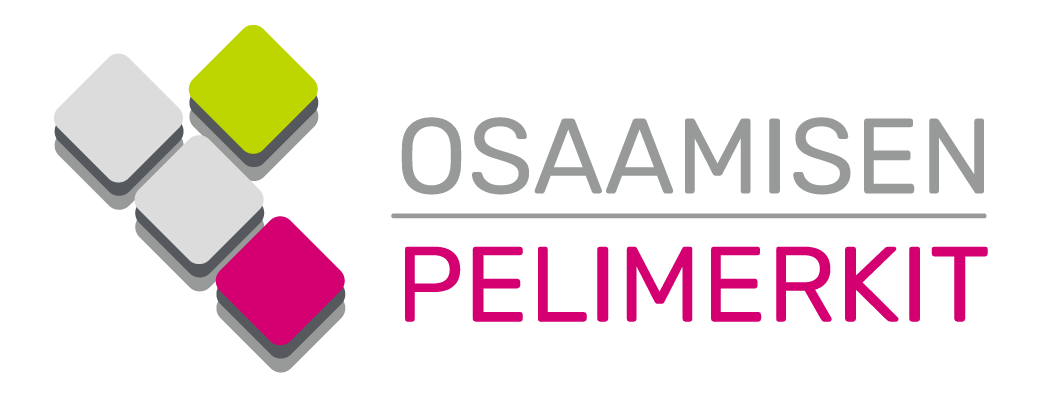
I have been working closely with the Finnish game industry for the past three years developing and managing degree programs for game artists and game programmers. Almost every one of my students asks me at some point if there are jobs in the game industry and what should they do to get one.
In the autumn of 2017, I was creating a MOOC to introduce the game industry with my team in Amiedu. We conducted sixteen interviews with industry experts from eleven different companies or institutions and we asked them: ”what should a person do who is dreaming to work in the game industry?”. Pretty much everyone gave us one answer. Start making games!
Create games and publish
The one and foremost thing the game companies will ask you when you are applying for the job is what games have you made and what have you published. It is important for all that aspire to be a game maker to start making those games themselves. Practice, learn, do small projects to enhance your skills, but make sure you also get something done.
Not all the projects need to be completed and it’s good to practice a variety of things and discard those projects that are not going forward. But for the people who are deciding about hiring, one of the most important things they want to know, is that the person they are hiring can get things done. So, make sure you have playable, published games in your portfolio. The games don’t need to be commercially successful, but they need to be published.
The portfolio
The most important tool in applying for a job is the portfolio. It doesn’t matter if you are looking for work as an artist, programmer, designer, lead, marketing specialist or even CEO – everyone must have a portfolio. Obviously, the portfolios can, and must, be very different from each other depending on the job you are looking for. But there are some basic guidelines that apply to every portfolio.
First, choose a platform for your portfolio, that is easily read and viewed and make it simple to get the big picture of your skills and experience. When someone is looking through a hundred portfolios they will easily skip everything that takes too much time or is too complicated. Make sure to give the wow-effect immediately when someone opens your portfolio. Second, present your skills as broadly as possible. If you are great in drawing realistic fantasy art, don’t fill your portfolio with a hundred dragon and elf pictures, but choose the best of every style and genre that you can make and make sure to write a little bit of the pictures and how you made them.
For a programmer, the portfolio is usually built in GitHub or some other platform that is meant to store and share code. Building your own website with illustrations of your projects might be a way to go. You need to be able to quickly communicate your skills to the potential employer and don’t expect them to read your code through until you have raised the interest in some other means. Also, try to highlight the variety you have made. No need to show a hundred pieces of code from 2D-platformers character controls – unless that’s the only thing you can do.
Future needs of different professions – results of a survey
As a part of this Chips for Game Skills -project we conducted a survey questionnaire in spring 2018 for the game industry professionals asking about the skills that will be needed in the near future. We got 26 answers from professionals around Finland and the results are seen in the following chapters.
Skills for programmers
To get a position as a programmer in a gaming company you need to know how to code and show it. The most important languages seem to be C# or C++, but there is also a requirement for Java and Swift. It’s better to be really proficient with one language than to know a little about each so it’s a good idea to choose one and specialize at first and then learn the differences from the other languages. The knowledge of the most widely spread game engines – Unity and Unreal Engine – is a good idea. At least one of these is pretty much a requirement. Then again if you are a strong coder already and just haven’t made games before, don’t worry. There is always a shortage of full stack developers and server back-end developers.
Programming is obviously the most important skill for a programmer, but it’s not the only thing. Making games is teamwork and thus it is important to communicate. So, communication skills and how to give and take feedback is very important. The days of the lonely wolf coders that never want to see other people are pretty much over. Now you need to understand what other people in your team are doing and you need to make them understand what you do. It’s also a great idea to listen to your clients and understand how their minds work.
Other technical skills that the companies are hoping to see in their coders are the optimization, databases, version control, cloud techniques, and user interface. But they also want programmers to understand business, marketing and design.
Skills for artists
An artist in the Finnish game industry needs a wide variety of skills. Being good in drawing and modeling with industry standard programs like Photoshop and 3Ds Max is a beginning. Other programs that are good to know are Illustrator, Blender, Maya, Substance Painter and Modo. One thing that was mentioned by many industry professionals, is that you need to have an eye for colors and light. It’s also an excellent idea to learn traditional drawing – yes, with a pencil.
To really succeed as an artist, it’s not enough to be able to make art, but you need to be able to make art that is needed. Once again one of the most important skill is communication and to work as a team. Learn to understand how the projects are done, the customer needs and the business side as well. What seems to be most in demand are the technical artists and UI- and UX-designers. So here is a tip for you guys – learn to code and script!
Skills for designers
A good designer is creative and comes up with lots of ideas, but even more important is to be coherent and systematic. A good design is solid and connected, where all the pieces fit together. A designer also needs to understand numbers and calculations to generate the rules of the game. And one of the most important things for a designer is to understand business and how to create a commercial potential for the game.
A commercially successful game needs to be designed as such from the beginning. It is extremely hard to come up with a business model once the game is already done. You have probably seen a lot of examples of games that are spoiled by monetization. The best revenue comes from the games that have a solid business that does not spoil the gaming experience. And this is the work of a designer – probably the hardest work of creating a game.
To succeed as a game designer, you need to play a lot of games, be a superb communicator, understand the business and the client segments and know how to use Excel.
What else do the game companies need
Although most of the jobs in the industry are for either programmers, artists, and designers, there are more and more opening for other kinds of experts as well. A quick look at the gamejobs.fi shows me that there are positions for recruiters, product managers, data scientist, QA engineers, server developers, business people, web designers, marketing specialists and a lot of other places.
If you are interested in working in a game company and you have education and experience from some other field, it is very much possible, that there is a game company interested in hiring you. Don’t be shy about sending your resumes in.
What makes a senior
A lot of companies are looking for senior employees, but what makes a senior? Is it the years they have worked in the industry or is there something else to it? We asked this from the industry professionals as well. Obviously, the experience is one thing, but it’s really about the skills that come with experience.
Senior can evaluate the workload and have a realistic view of what can be done and what kind of resources are needed. She needs to be able to see the big picture and the milestones how to reach the goal.
Senior needs to have confidence in her own skills and work independently, but also to be able to lead others and divide the knowledge that she has. She can choose the right tools and technologies and is productive. Senior has a lot of finely grained expertise that is not easily taught but is learned by making a lot of mistakes. All this comes along working years, but you can accelerate the process by studying and getting involved in the projects. Create a lot of games, do the mistakes and learn from them.
About the writer:
Jouko Loijas has been playing games with computers since 1986 and has been working in ICT for two decades in various roles. He was involved in designing and managing the game developers degree programs in Amiedu for a few years and since autumn 2018 he is a project manager in service of Metropolia UAS, that is really interested in games and the game industry. He is working in several projects involving the game industry. His goal is to build bridges between education and the industry.
